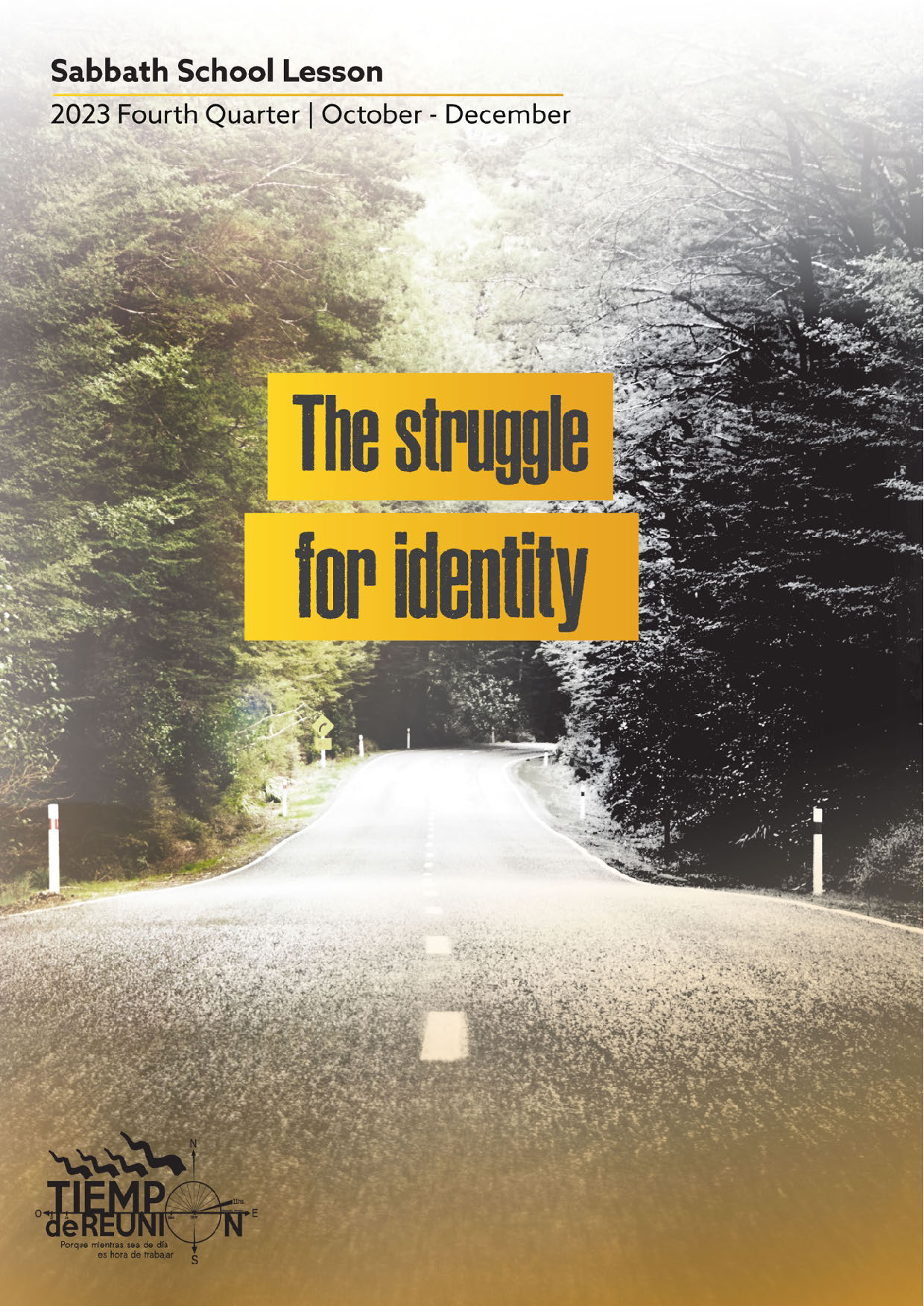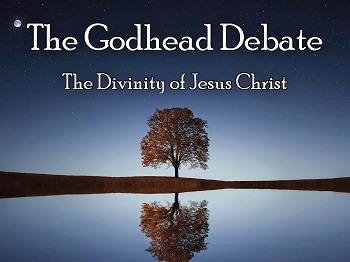Forgiveness in the Covenants and in the Character of God
Revision:
Covenant diagrams - discuss.
Formula for “forgiven”
Luke 17:3, 4
3 Take heed to yourselves: If thy brother trespass against thee, rebuke him; and if he
repent, forgive him.
4 And if he trespass against thee seven times in a day, and seven times in a day turn again
to thee, saying, I repent; thou shalt forgive him.
Forgiven = giving of forgiveness + receiving of forgiveness
How did God give His forgiveness?
Colossians 1:13-14:
13 He [i.e. God] has delivered us from the domain of darkness and transferred us to the
kingdom of his beloved Son, 14 in whom we have redemption, even the forgiveness of sins.
God’s forgiveness is in His Son.
John 3:16 says
For God so loved the world, that he gave his only begotten Son, that whosoever believeth in
him should not perish, but have everlasting life.
God’s forgiveness is in His Son and He gave His Son. So, when He gave His Son,
He gave His forgiveness. When did He give His Son?
1 Peter 1:19, 20
19 But with the precious blood of Christ, as of a lamb without blemish and without spot:
20 Who verily was foreordained before the foundation of the world
Revelation 13:8
And all that dwell upon the earth shall worship him, whose names are not written in the
book of life of the Lamb slain from the foundation of the world.
The gift was given even before man understood he needed a saviour. Of which
covenant are we speaking? New covenant.
Zech 6:13 the counsel [H6098 - plan] of peace [H7965 shalom - completeness] shall be
between them both
The plan of completeness for the salvation of men shall be between them both. That
is the new covenant!
Now let’s return to Colossians 1:13, 14 because we have another equation in it.
13 He [i.e. God] has delivered us from the domain of darkness and transferred us to the
kingdom of his beloved Son, 14 in whom we have redemption [G575 apo – off/away &
G3083 lootron – loosen], even the forgiveness [G859 afesis – freedom/pardon] of sins.
Redemption [loosen off/away] = the forgiveness [freedom/pardon] of sins
Now let’s take a little time to look at forgiveness in our Father’s character.
Exodus 34:6, 7
6 And the LORD passed by before him, and proclaimed, The LORD, The LORD God,
merciful and gracious, longsuffering, and abundant in goodness and truth,
7 Keeping mercy for thousands, forgiving iniquity and transgression and sin, and that will
by no means clear the guilty; visiting the iniquity of the fathers upon the children, and upon
the children's children, unto the third and to the fourth generation.
He is forgiving. That is His character. He is constantly holding out His forgiveness.
He is constantly holding out His Son in whom is that forgiveness saying “Receive
Him”. He constantly inviting mankind into the new covenant.
The word, forgiving, comes from H5375, nawsaw, which has a wide variety of
applications with the base meanings of to take up, to lift up, to bear, to carry.
Forgiving [lifting off or removing/bearing/carrying] iniquity [moral corruption] and
transgression [revolt/rebellion] and sin [misstep]. As bad as these things are, He lifts
them off us. The only one He cannot lift off is the next one - and that will by no
means clear the guilty – which is unpardonable because the sinner does not want
pardon and refuses pardon. And so the iniquity, the moral corruption, which they will
not give up, is passed down to, or visited upon, succeeding generations.
In Isaiah 53:12, the same word, nawsaw, is used in relation to Christ.
Therefore will I divide him [a portion] with the great, and he shall divide the spoil with the
strong; because he hath poured out his soul unto death: and he was numbered with the
transgressors; and he bare the sin of many, and made intercession for the transgressors.
Behold the lamb of God which taketh [beareth] away the sin of the world. John 1:29
So in Hebrew, the forgiveness of God has in it the meaning of bearing or removing
the sins of others upon Himself, manifested in the person of His Son.
We are told in 1 John 4:8 that God is agape. What He is, is agape. What He does,
is character. So, it must be that all the qualities of His character in Exodus 34:6, 7
must be the qualities of agape. So, when we look at Exodus 34:6, 7 we are looking
at agape. Ex 34:6, 7 is what agape looks like.
Agape gives before it is asked, and it gives without being asked. Agape anticipates
need.
If we go to the account of Adam’s sin, where is the record of Adam asking
forgiveness for his sin? There isn’t one. And yet, forgiveness had already been
given for Christ is the lamb slain from the foundation of the world (Rev 13:8) and in
Him we have redemption, the forgiveness of sins (Col 1:13, 14).
How do we know that the gift of the Son of God for man’s redemption had already
been made when the guilty pair were confronted by Christ walking in the garden in
the cool of the day?
We are told in Genesis 3:15 –
And I will put enmity between thee and the woman, and between thy seed and her seed; it
shall bruise thy head, and thou shalt bruise his heel.
This verse tells us that the new covenant was already enacted and put in place.
Christ was already the lamb slain.
But Adam had not yet received forgiveness because he did not know he needed it
and he could not know he needed it because he was afraid of God. Why was he
afraid of God? Gen 3:10 – I was afraid, because I [was] naked. But Genesis 2:25 says
And they were both naked, the man and his wife, and were not ashamed. So, Adam’s fear
wasn’t because he was naked per se, but that he was ashamed that he was naked,
and he was frightened of what God would do to him.
But God, being agape – i.e. forgiving iniquity and transgression and sin, had already
given His forgiveness but Adam could not receive it. Adam does not know that his
sin has already been nawsaw, lifted from him and so he is cowering in guilt and fear.
What he is experiencing is described in Leviticus 5:17.
And if a soul sin, and commit any of these things which are forbidden to be done by the
commandments of the LORD; though he wist [it] not, yet is he guilty, and shall bear his
iniquity.
That word, bear, is nawsaw, the same word translated as forgiving. Bur here it is
different. The sinner is bearing his own iniquity, his own guilt. This what is
happening to Adam. He is bearing his iniquity. And, he is bearing it naked. He does
not have a covering and he is ashamed about it.
But God’s forgiveness, God’s nawsaw, brings with it a covering.
Psalm 32:1 Blessed [is he whose] transgression [is] forgiven [nawsaw], [whose] sin [is]
covered [H3680 kawsaw – to cover over].
What is the blessing for he whose transgression is forgiven? Nakedness is covered.
Psalm 85:2
Thou hast forgiven [nawsaw] the iniquity of thy people, thou hast covered all their sin.
Selah.
This is what God does. This is His character. This is the new covenant.
Now turn to Psalm 86:5
For thou, Lord, art good, and ready to forgive [H5546]; and plenteous in mercy unto all them
that call upon thee.
Is this our Father’s character?
“ready to forgive – H5546 sal-lawkh according to Strongs means placable. Placable
means easily calmed; gentle and forgiving.
Nehemiah 9:16, 17
16 But they and our fathers dealt proudly, and hardened their necks, and hearkened
not to thy commandments,
17 And refused to obey, neither were mindful of thy wonders that thou didst among
them; but hardened their necks, and in their rebellion appointed a captain to return to their
bondage: but thou art a God ready to pardon [H5547], gracious and merciful, slow to anger,
and of great kindness, and forsookest them not.
Is this our Father’s character? Compare with Exodus 34:6, 7.
Merciful and gracious – is that here in Nehemiah 9:17? Yes.
Longsuffering? Yes – slow to anger.
Abundant in goodness and truth? Yes – goodness [H2617], kindness [H2617] –
same word in both texts.
Keeping mercy for thousands? Could cover forsookest them not.
Forgiving iniquity and transgression and sin? No – ready to pardon is not the same
as forgiving.
If God is ready to pardon or ready to forgive, what does that imply? – that something
has to happen first on the part of the sinner. While there is a sense in which that is
right, we need to make sure we have it in the correct context.
Compare with the covenants and forgiveness formula.
Now let’s look at the Hebrew words used in these two texts for a moment. I actually
want to look at three words because they are consecutive – H5545, H5546, H5547.
H5545 – saw-lakh – from a primitive verb – to forgive, pardon, spare
This word is used 46 times in 45 verses. It is not used in either these texts, but an
example is Psalm 25:11 For thy name's sake, O LORD, pardon mine iniquity; for it [is]
great. We can see that it is a verb.
H5546 – only used once in the Bible and that is Psalm 86:5 that we just looked at –
sal-lawkh – meaning placable or ready to forgive according to Strongs. However,
both Gesenius and BDB say the meaning is simply forgiving. So, let’s read it again
with that meaning. For thou, Lord, art good, and forgiving, and plenteous in mercy unto all
them that call upon thee.
Is that rendering now consistent with Exodus 34:7? Yes.
H5547 – sel-ee-khaw – forgiveness, pardon. This is the word used in Nehemiah
9:17.
This word is used in just 3 places in the Bible. Here are the other two places.
Psalm 130:4 But [there is] forgiveness with thee, that thou mayest be feared. Here it is
used as a noun.
Daniel 9:9 To the Lord our God [belong] mercies and forgivenesses, though we have
rebelled against him. Here, it is a noun in the plural.
Gesenius says H5547 in Nehemiah 9:17 is also in the plural as it is in Daniel. YLT
renders it that way.
Nehemiah 9:17
yea, they refuse to hearken, and have not remembered Thy wonders that Thou hast done
with them, and harden their neck and appoint a head, to turn back to their service, in their
rebellion; and Thou `art' a God of pardons, gracious, and merciful, long-suffering, and
abundant in kindness, and hast not forsaken them.
Do we now have alignment between these texts and with the new covenant and with
the character of God in Exodus 34:6, 7? Yes.
This is our Father’s character. He is forgiving. This is consistent with the new
covenant view of God – provision was made before the world began. This is
consistent with the fact that God gave His forgiveness when He gave His Son which
was when Adam sinned.
This is what is in the heart of God towards man.
Turn to Romans 5:8
But God commendeth [exhibited] his love toward us, in that, while we were yet sinners,
Christ died for us.
This is the only time Christ could die for us; while we were yet sinners. So it must be
that Christ died for all of humanity while we were yet sinners. This means He died
for Adam while he was yet a sinner. It must also mean that He died for everyone
born after the crucifixion while they were yet sinners. How can that be?
Turn to Romans 4:17
(As it is written, I have made thee a father of many nations,) before him whom he believed,
[even] God, who quickeneth the dead, and calleth those things which be not as though they
were.
So, God calls those things which are not as though they were. With that thought in
mind, let’s go back to Zechariah 6:13 – the counsel [H6098 - plan] of peace [H7965
shalom - completeness] shall be between them both.
Could it be that because the plan of salvation, the everlasting covenant, was so
perfectly the plan of completion, that God is able to call something which is
physically not, and that something is the cross which physically happened at one
point in time only, is it then possible that God is able to regard the cross as though it
were from the time of Adam’s sin, as an always present reality? How else was John
able to say in Revelation 13:8 that Christ was the lamb slain from the foundation of
the world? Remember that what was told to John on Patmos was The Revelation of
Jesus Christ, which God gave unto him, to show unto his servants things which must shortly
come to pass; and he sent and signified [it] by his angel unto his servant John, so what John
wrote came from the Father Himself through His Son. It has to be so.
God so loved the world that he gave [from the foundation of the world] his only
begotten Son, that whosoever [from the foundation of the world] believeth in him [His
only begotten Son], should not perish but have everlasting life. That is the
everlasting covenant.
How does the New Testament describe forgiveness and pardon? There are three
Greek words translated forgive and forgiveness. (The English word “pardon” does
not appear in the KJV New Testament.)
The words are:
G859 – aphesis – freedom/pardon
G863 – aphiemi – to send away
In terms of our formula for forgiveness, both of these words refer to the experience of
the one forgiven when forgiveness is received. They experience freedom from guilt
because their sin is sent away. This is a straight parallel to the Hebrew words
relating to the one forgiven.
The third word is G5483 – charizomai
Thayer’s meaning:
1) to do something pleasant or agreeable (to one), to do a favour to, gratify
1a) to show one’s self gracious, kind, benevolent
1b) to grant forgiveness, to pardon
1c) to give graciously, give freely, bestow
1c1) to forgive
1c2) graciously to restore one to another
1c3) to preserve for one a person in peril
When you read the meaning of charizomai, who does it sound like? It does remind
us of the character of God. The meaning captures what is in the heart of the one
giving forgiveness towards the one who is forgiven. It is agape.
Colossians 3:13 Forbearing one another, and forgiving one another, if any man have a
quarrel against any: even as Christ forgave you, so also [do] ye.
This is new covenant forgiveness. Here we are being encouraged to forgive – to
show one’s self gracious, kind, benevolent – to each other in the same way Christ is
towards us. How can we do that without Christ living in us? This takes agape.
Ephesians 4:32 And be ye kind one to another, tenderhearted, forgiving one another,
even as God for Christ's sake hath forgiven you.
Here we have it again. This is agape.
Here is another example of the word but not translated as forgiven.
Galatians 3:18 For if the inheritance [be] of the law, [it is] no more of promise: but
God gave [it] to Abraham by promise.
God gave it to Abraham. This is grace from the heart of God. This is agape.
So finally, with all of this in mind, I want to look at one last verse that causes a lot of
strong disagreement – 1 John 1:9.
If we confess our sins, he is faithful and just to forgive us [our] sins, and to cleanse us from all
unrighteousness.
Firstly, on a straight reading of this verse, it seems to fit the old covenant exactly. If
we do something – confess our sins – then God will do something – forgive us…
and… cleanse us. Sure sounds like the old covenant.
However, as we noticed in my last presentation, The Unpardonable Sin, it does not
fit with agape to look at this verse under the old covenant. As we saw earlier, it does
not fit with the Exodus 34:6, 7 character of God who is forgiving not waiting to forgive
and not ready to forgive but forgiving. Also, it does not fit with the new covenant for
under the new covenant, God has already given His forgiveness in the gift of His Son
from the foundation of the world.
So how do we understand 1 John 1:9 for the language seems to be very clear.
Consider this. When Lyn and I buy a present for one of our sons, it is his present
from the moment we acquire it. When we hold it out to him, he has two choices. He
can reach out and take it or he can reject it. If he takes it, he has received the gift. If
he rejects it, it is still his, but it remains in our possession.
Are we to understand 1 John 1:9 in that context. Could this verse describe the
coming into the new covenant relationship. Is this the doorway?
Notice what the verse says and what it does not say.
What is says is he is faithful and just to forgive us [our] sins, and to cleanse us from
all unrighteousness. What it does NOT say is he is faithful and just to GIVE US
forgiveNESS FOR us [our] sins, and to cleanse us from all unrighteousness.
The source verse John used is most likely Proverbs 28:13.
He that covereth his sins shall not prosper: but whoso confesseth and forsaketh [them] shall
have mercy.
How readest thou? Does this verse tell us that mercy is withheld until sins are
confessed and forsaken or does it tell us that the confession and forsaking of sins
opens the door in us to receive the mercy waiting outside the door to come in? Does
this sound like Revelation 3:20?
Behold, I stand at the door, and knock: if any man hear my voice, and open the door, I will
come in to him, and will sup with him, and he with me.
If we have the correct understanding of our Father’s character of love, of agape, and
we have the correct view of the covenants, then we can only read both 1 John 1:9
and Proverbs 28:13 as the receiving of the gift. We are not forgiven until we receive
forgiveness and the receiving of forgiveness is the confession of and repentance
from sin.
The word, forgive, in 1 John 1:9 is G863 – aphiemi – to send away. God cannot
send away our sin until we allow it. He does not force Himself on us. That is not His
character.
The gift has been given. It was given from the foundation of the world. We must
receive the gift to be forgiven.
I found this in 1 SM 326.
John writes, “If we confess our sins, he is faithful and just to forgive us our sins” (1
John 1:9). The only reason that we have not remission of sin is that we have not
acknowledged to Him whom we have wounded by our transgressions, whom we
have pierced by our sins, that we are at fault, and in need of mercy. The confession
that is the outpouring of the inmost soul will find its way to the heart of infinite pity; for
the Lord is nigh unto him that is of a broken heart, and saveth such as be of a
contrite spirit. {1SM 326.1}
Did you get that? The only reason that we have not remission sin is not that God
hasn’t given it, it is that we have not acknowledged to Him whom we have wounded
by our transgressions, whom we have pierced by our sins, that we are at fault, and in
need of mercy.
If we confess our sins, he is faithful and just to forgive us [our] sins, and to cleanse
us from all unrighteousness.
The agape of God and of His Son has given us the gift. It is ours. Will we leave it in
their possession or will we reach out and receive what they so desperately want us
to receive?





